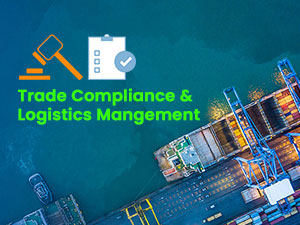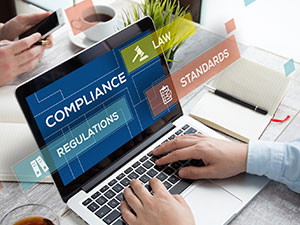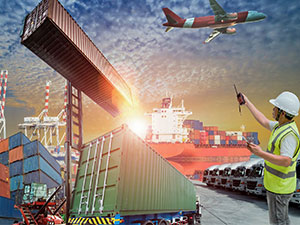Blog Details

Blockchain and the Future of Supply Chain Logistics
Introduction to Blockchain and Supply Chain Logistics
Blockchain technology, widely known for its role in cryptocurrencies like Bitcoin, is increasingly recognized for its potential to revolutionize the supply chain logistics industry. This article delves into how blockchain is shaping the future of supply chain management, focusing on its benefits, challenges, and future trends.
Understanding Blockchain
Blockchain is a distributed ledger technology that records transactions across a network of computers. This decentralized system ensures that records are secure, transparent, and immutable, making it a powerful tool for improving supply chain processes. Recent advancements have highlighted blockchain’s ability to enhance transparency and reduce fraud in various industries, including logistics.
Supply Chain and Logistics: A Brief Overview
The supply chain encompasses the entire network of entities involved in producing and delivering a product, from raw materials to final consumers. Logistics focuses on the efficient management and coordination of these processes, ensuring timely delivery and optimal performance.
Current Applications of Blockchain in Supply Chain Logistics
1. Transparency and Traceability: Blockchain’s immutable ledger provides a single, transparent record of all transactions, enhancing traceability. For example, IBM’s TradeLens platform, developed in collaboration with Maersk, has demonstrated how blockchain can improve transparency in global shipping by tracking cargo movements and verifying authenticity.
2. Enhanced Security: Blockchain technology uses cryptographic techniques to secure data across a distributed network. This reduces the risk of data breaches and tampering. Recent news indicates that Walmart is using blockchain to trace the origin of food products, which helps in ensuring food safety and reducing recalls.
3. Efficiency and Cost Reduction: Blockchain streamlines processes by automating tasks through smart contracts. These self-executing contracts reduce the need for intermediaries, which lowers costs and accelerates transactions. For instance, De Beers uses blockchain to track the provenance of diamonds, ensuring ethical sourcing and reducing fraud.
Challenges of Implementing Blockchain in Supply Chains
1. Integration with Existing Systems: Integrating blockchain with current systems can be complex and expensive. Companies need to invest in new technology and train personnel. A recent report by Gartner highlighted that many companies face challenges in integrating blockchain with legacy systems due to high costs and technical difficulties.
2. Scalability Issues: Blockchain networks may encounter scalability issues, such as slower transaction speeds and higher operational costs. Ethereum, a popular blockchain platform, has faced criticism for its scalability challenges, which could impact its use in large-scale supply chain applications.
3. Regulatory and Compliance Concerns: Blockchain’s decentralized nature can complicate regulatory compliance. Companies must navigate varying legal frameworks and standards. The European Union is working on regulations to address these issues, aiming to create a balanced approach that supports innovation while ensuring compliance.
Benefits Realized from Blockchain in Logistics
1. Reduced Fraud and Errors: Blockchain’s immutable ledger minimizes fraud and errors by providing a verifiable record of all transactions. JPMorgan Chase has reported that blockchain can significantly reduce discrepancies in financial transactions, which is applicable to supply chain finance as well.
2. Improved Supply Chain Visibility: Real-time tracking and visibility into the supply chain enhance operational management. FedEx has announced its plans to leverage blockchain for real-time shipment tracking, improving efficiency and customer satisfaction.
3. Streamlined Processes: Automation through smart contracts and improved data accuracy streamline processes. UPS is exploring blockchain technology to automate customs processes, aiming to speed up international shipping.
Future Expectations and Trends
Blockchain technology is expected to become more integrated into supply chain logistics as advancements continue. Key trends include:
1. Increased Collaboration: Companies are likely to collaborate more on shared blockchain networks, enhancing transparency and efficiency. Amazon Web Services (AWS) is facilitating such collaborations through its blockchain services, allowing businesses to build and manage blockchain networks.
2. Advanced Technologies: Integration with Artificial Intelligence (AI) and the Internet of Things (IoT) will further enhance blockchain’s capabilities. For example, Cisco is combining blockchain with IoT to improve supply chain management and product authenticity.
3. Regulatory Developments: Evolving regulatory frameworks will impact blockchain adoption. The United Nations is developing guidelines for blockchain use in supply chains, aiming to balance innovation with regulatory oversight.
Conclusion
Blockchain technology holds transformative potential for the supply chain logistics industry. Its benefits in transparency, security, and efficiency are evident, though challenges remain. As the technology evolves and integrates with other advancements, its impact on supply chains is expected to grow, driving further innovation and improvement.
4PL Consultancy has a team of experts in Tariff classifications of wide variety of Product lines – Medical spares, Aerospace, Radiation Oncology machines & spares etc.





